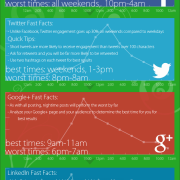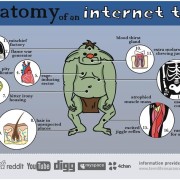Captcha: Annoying, But A Necessary Evil
By now, we’ve all encountered those pesky tests throughout the Internet, intent on ensuring content is only being accessed by humans. Although we may find them annoying, there is actually a very good reason for the whole system. Let us share some research with you!
CAPTCHA was developed by a team at Carnegie Mellon University back in 2000 in response to a request from Yahoo! to quell the use of their mail services sending out automated spam messages. The result was a computer program, CAPTCHA or Completely Automated Public Turing test to tell Computers and Humans Apart. The idea was to have a program where images are created that humans can decipher but not computers, therefore diminishing the ability for automated systems to go in and mess with Internet traffic.
CAPTCHA is now found on almost all interactive sites. Before you post a comment on a blog or news site, a CAPTCHA is there to make sure you’re not using spamming software to boost SEO. Rate limiting is a common use of CAPTCHA in order to protect the integrity of sites for their human users. The theory is that a CAPTCHA test will not be seen as an inconvenience to human users as they use the features on a site once or twice while a software program designed to spam a system will want access over and over. That theory is debatable, no?
Buying concert tickets? Better have your quick-type fingers ready to pass the CAPTCHA test before time runs out. Ticketmaster would rather have their tickets in the hands of actual fans instead of scooped up by scalpers whose only intention is to re-sell the tickets at ridiculous prices.
As with any system, there are always those rebels looking to circumvent CAPTCHA via software and human means. Some software programmers have developed programs that attempt to crack CAPTCHAs in one of three ways:
- Pre-processing: the removal of ‘background noise’ from an image
- Segmentation: splitting an image into single character segments
- Classification: identifying characters in the regions of images
Some attackers/spammers have set up whole businesses, hiring workers (mostly in developing countries) to solve CAPTCHAs that are then archived and sold off to other attackers intent on getting around CAPTCHAs.
Since its inception over 10 years ago CAPTCHA has continued to become more prevalent and advanced, as have those trying to hack the system. CAPTCHA has been (and will continue to be) the ‘water locks’ system of the Internet, keeping the spam at bay for all of our personal enjoyment.
Articles consulted for this piece:
http://www.time.com/time/magazine/article/0,9171,1812084,00.html
http://tech4b.blogspot.ca/2012/04/beating-captchas.html
http://paper.ycsns.org/)7_book/200703/20070348.pdf
http://www.cs.cmu.edu/~biglou/recaptcha_science.pdf
http://www.nytimes.com/2010/04/26/technology/26captcha.html?src=me&ref=technology&_r=1&
http://web.archive.org/web/20060613111749/http:/www.ceas.cc/papers-2005/160.pdf














Trackbacks & Pingbacks
[…] on a link inside the automatically generated DM that takes them to a website where they type in a Captcha in order to follow you. It’s a headache and a complete turn-off for potential followers. If […]
Leave a Reply
Want to join the discussion?Feel free to contribute!